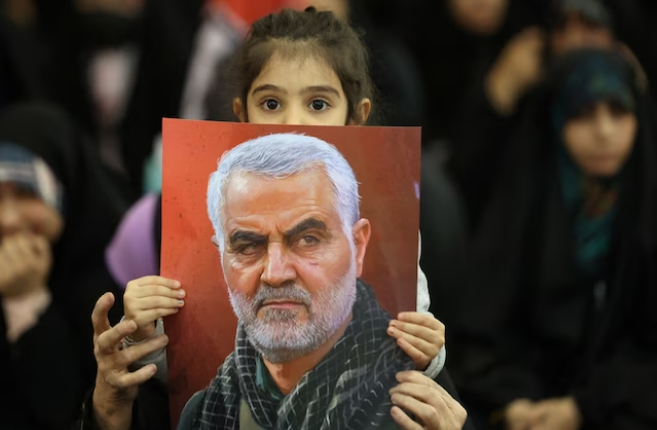In a shocking turn of events on Wednesday, southern Iran witnessed two explosions during a memorial event, claiming the lives of at least 95 individuals. The incident occurred near the tomb of General Qassem Soleimani, a senior Iranian military figure killed in a U.S. drone strike in 2020. This devastating attack has further heightened tensions in a region already fraught with instability.
The first explosion occurred around 2,300 feet from the tomb in the Kerman Martyrs Cemetery, with a second blast following approximately 2,000 feet away. No individual or group has claimed immediate responsibility, leading to speculation and accusations.

Despite initial doubts, U.S. officials suggest that neither the U.S. nor Israel was involved in the attack. However, Iran is attributing the bombings to Israel, with President Ebrahim Raisi asserting the involvement of American and Israeli agents. The lack of a clear narrative surrounding the incident adds to the complexity of an already uncertain situation.
General Qassem Soleimani, born and raised in Kerman, held a crucial role as the leader of Iran’s Quds Force, responsible for safeguarding Iran’s interests in various countries. The memorial event, meant to honor his legacy, turned into a tragic scene of chaos and loss.
Iranian officials were quick to condemn the explosions, labeling them as “terrorist attacks.” However, the regime’s control over information leaves room for uncertainty about the details of the incident. Reports indicate that three policemen were among the fatalities, emphasizing the indiscriminate nature of the attack.
The Iranian government attributes the attack to terrorists, pointing to two suitcases filled with explosives as the cause of the explosions. The lack of sophistication in the attack raises questions about the perpetrators’ identity and motives.
Despite the tragedy, the global community remains cautious about jumping to conclusions. Counterterrorism experts suggest that the attack’s simplicity may align with the modus operandi of groups like the Islamic State’s Wilayet Khorasan or the Baluch group Jaish al-Adl. These groups have a history of large-scale attacks in Iran, often targeting civilians.
The attack in Kerman comes amid rising tensions in the Middle East, with the recent killing of Hamas leader Saleh al-Arouri in a reported drone strike in Beirut. This event has fueled concerns about a broader regional escalation, with Israel and other countries confronting Iran-backed groups.
While the relation between the Israel-Hamas conflict and the Kerman bombings remains unclear, the timing of these events underscores the volatility of the Middle East. The ongoing covert conflict between Israel and Iran, marked by targeted killings and operations against Iran’s nuclear program, adds a layer of complexity to the geopolitical landscape.
The tragedy in Kerman is not an isolated incident; it is part of a larger narrative of internal protests and external attacks that have rocked Iran in recent years. The death of General Soleimani in 2020 sparked widespread protests in Iran and Iraq, with many demanding retaliation against the United States.
Mass protests, internal unrest, and external attacks from exile groups have become recurring themes in Iran. The country’s tumultuous history, marked by the 1979 Islamic Revolution and subsequent conflicts, shapes its present challenges. The regime’s efforts to maintain control amid internal dissent and external pressures contribute to the complexity of the situation.
As the investigation into the Kerman bombings unfolds, the international community watches closely. The lack of immediate claims of responsibility leaves room for speculation and diplomatic maneuvering. The tragedy serves as a stark reminder of the fragile peace in the region and the potential for further escalations.
Read More:
- Violence Erupts in Nevada Courtroom Defendant Attacks Judge During Sentencing, Prompts Review of Safety Protocol
- A Unique Journey unmasked through Tips, and Wordle Wonders
In times of uncertainty, maintaining a balanced perspective is crucial. While emotions run high, it is essential to await verified information and thorough investigations before drawing conclusions. The geopolitical chessboard of the Middle East is intricate, and events like the Kerman bombings add new layers to an already complex narrative. As the world grapples with the aftermath of this tragedy, a nuanced understanding of the region’s dynamics becomes more critical than ever.

